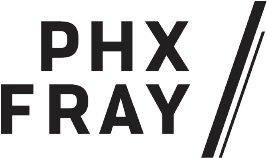Sanity Check: Balancing Success + Well-Being

I have thought often during the pandemic of shaving off my long blond hair. Reduced hair maintenance is enticing, and I am not going to parties anyway.
Then, I envision my colleagues staring from my computer screen, and the three or so friends who visit me IRL. Everyone would see me as a pandemic-era Britney Spears and spring to answer the obvious cry for help. The amount of time and energy needed to reassure them would totally cancel out any relaxation I might gain from the novelty of baldness.
But I realized recently that perhaps my pandemic desire for hairlessness was really a desire for simplification.
Because even though we are almost always at home, life is not simple. There is the endless parade of Zoom calls, the social media pressure to make sourdough, the need to keep up with pandemic news, and – for many – looking after kids and other dependents. And the stress and makeshift workspaces and social media overexposure are translating into real physical pain.
A mantra I hear more and more is: “I can’t wait for things to return to normal.” But memory is a funny thing. The prepandemic “normal” was also nonstop obsession with work/life imbalance, just with less sourdough. I don’t want normal back. I want better than normal.
So I turned to the District’s vibrant wellness community to get some expert advice. Alina Liao – a veteran of the D.C. nonprofit scene and founder of wellness company Zenit – shared her escape from career burnout. Many organizations “talked a lot about work/life balance, but we still worked long hours,” she remembers of her former career. “I thought of it as my strength and something I could contribute to the organization.”
Liao’s breakthrough moment came at one of her lower points, sparking her need for self-care.
“[During] a moment when I was falling off my wellness routine and feeling down, I suddenly had the insight [that] I am worth taking some damn time for myself,” she tells me. “We all can go on our own personal journey to let go of the idea that our worth is tied to our productivity.”
But these are heretical words to the overachievers in Washington. How do we internalize that idea while still pursuing professional success?
“Real magic can come from not doing,” says local wellness consultant Yonah Levy. “When we want to achieve so much, we work so hard that we do not give ourselves the downtime to refresh our energy.”
I nod and glance at my iPad, and even though he can’t see me on our call, he somehow knows what I’m doing.
“Downtime is not time on another screen,” he adds. “Music is okay, but do not be looking at that screen.”
D.C.-based wellness practitioner Dinah Simpson approaches stillness through meditation, and somehow she also knows I am glancing at screens a lot.
“It is hard to be still,” she reassures me. “I used to have an aversion to meditation because I did not want to be alone with my own thoughts. Give me music, [an] audio book, anything. It is hard.”
Simpson suggests starting with guided meditation or sound meditation, which uses gongs, bells and other instruments. Short meditations of two to three minutes are also good – just no screens.
In addition to stillness, establishing routines and habits are important to “wall off” work – and some of the hardest to establish while working from home.
“When this all started, there was no structured time,” Simpson says. “I need an anchor in the morning and an anchor in the evening, and meditation provides that.”
Levy urges, “Pretend you are on your commute. Get outside as soon as possible in the morning. You get a ton of light, even on gray days. That starts our systems, coupled with a short walk.”
Turns out that the dreaded prepandemic commute was actually a healthy buffer between home and office. Liao treats mornings as sacred.
“I like to do my daily journaling as I drink my coffee,” she says. “And as I do that, I make sure I keep my laptop closed. I might be sitting next to it to transition easily into work, but it is closed when I’m not working.”
Once the laptop is open, do not leave wellness behind. Organizations are increasingly open to sponsoring initiatives that foster teambuilding.
“There’s power to numbers,” Liao observes. “The more people who bring this up to HR, the more it can be elevated as a clear concern to show leaders this is something that high-performance professionals care about.”
Beyond asking for team meditations or wellness coaching, employees can also advocate for wellness being integrated systemically, which could include annual evaluations of the company’s own performance in fostering wellness.
“We need to view each other as human beings, not just workers,” Liao adds. “I’d like to leave the work day at peace.”
For more on Alina Liao and Zenit, visit www.zenitjournals.com and follow @zenitjournals
on Instagram. Keep up with Yonah Levy at www.yonahlevy.com and follow him @yonahlevy
on Instagram. More on Dinah Simpson can be found at www.dinahsimpson.com and follow her @dinahhighkiliving on Instagram.
Enjoy this piece? Consider becoming a member for access to our premium digital content. Support local journalism and start your membership today.

